If you are interested in reality and scientific methodology, the story of Antoni van Leeuwenhoek (a scientist from my own country) is interesting. It was finally discovered what Antoni van Leeuwenhoek’s secret way of making superior lenses was: he ground them by hand.
All said and done, he was simply more skilled than others in grinding lenses.
Why is this interesting?
Well, he discovered a lot of things we did not know at the time. This is a story about how and why he was so successful.
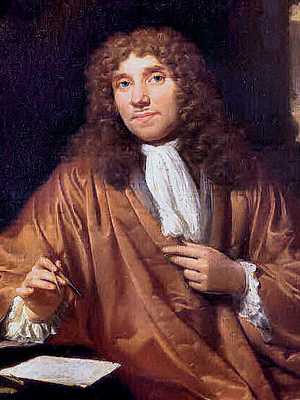
Antoni van Leeuwenhoek was born in Delft in 1632. His father was a craftsman making baskets. Young Antoni worked in a draper’s shop in Amsterdam for about 6 years, moved back to Delft, where he started his own shop and apparently did well.
He got into local politics and also offered land measuring services. He did not attend higher education.
But he was a member of a strict protestant religion and did follow a rigorous scientific method. He discovered bacteria, sperm-cells, red blood cells and muscle fibres amongst many other things. Even his many smaller discoveries would still count as revolutionary. In the end he also became rich and famous.
The reason he could make all these discoveries was that he had a better microscope than had the others. The microscope lenses for this he made himself and he refused to divulge how he made them to such high precision. He preferred to tell people what he discovered through his new microscopes instead.
The new tool made the discoveries possible.
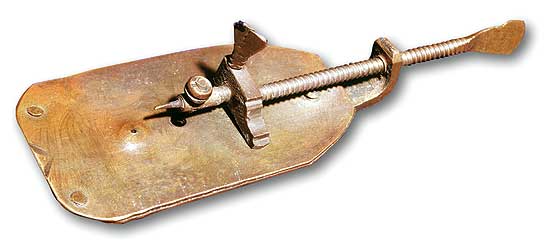
Another story
A similarly instructive story is how it was recently discovered how Antoni van Leeuwenhoek actually made his lenses. A relatively new method was used: neutron tomography. Measuring the absorption rates of neutrons through Antoni’s old lenses, researchers were able to determine that they were actually, simply, hand-grinded.
In both stories it was the tools that enabled observations that led to new discoveries.
The real world
Going back further in time, to the dark ages,to be precise, just before 1350, around half the world-population was wiped out because of the plague. It was caused by a bacteria, which we now name Yersinia pestis. At the time of the black death, bacteria were unknown (they were discovered much later by a guy named Antoni van Leeuwenhoek)
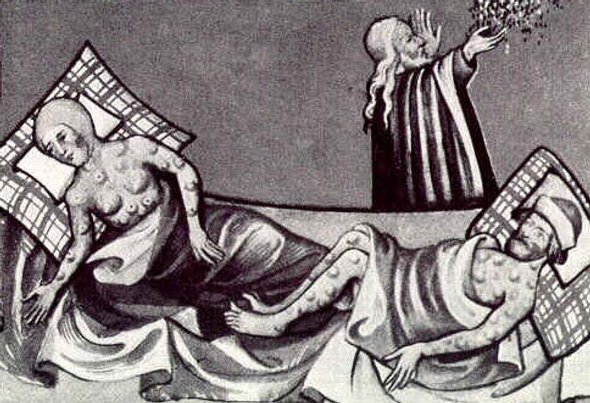
Various theories about the spread of the disease existed. One of them was the Miasma theory, that sort of assumed the disease spread through the air. Others thought it was a punishment of God and became very religious. It was known that the disease spread to many people in an area at the same time.
So, this may sound like a stupid question, but: did bacteria exist at the time? even though nobody had ever discovered these little creatures yet?
It seems obvious and I believe they did.
In the “real-world” they existed. The bacteria were what made people sick. Even when the people at the time did not know of their existence.
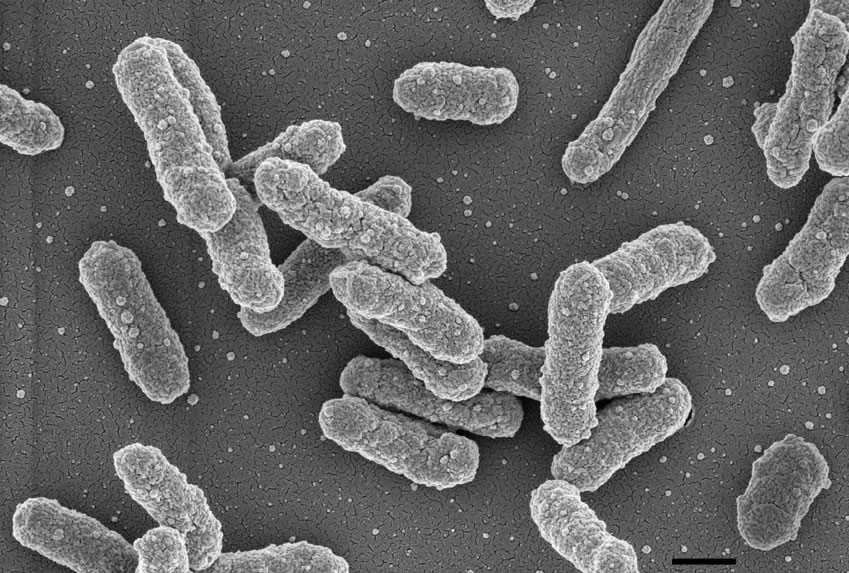
There were many theories around the epidemic, but the existence of little animals that are too small to see, that grow and that attack the body, was unprovable at the time. The necessary tools (i.e. a microscope) were unavailable. Even if somebody had come up with the right theory, other theories would have been just as believable.
The real-world of microorganisms had existed for a long time, when it was discovered by Antoni van Leeuwenhoek, many year later, because he had a good-enough microscope. And scientific rigour.
Could Antoni van Leeuwenhoek have discovered electrons as part of the atom? Or nuclear fusion? No!
His “microscope” was not nearly powerful enough for that and other techniques for exploring atomic particles, like particle accelerators, were as yet unavailable.
At the time of Antoni van Leeuwenhoek, atoms and molecules existed, but were not discovered yet. It would have been perfectly possible to build an atomic bomb, a moon rocket or a computer. But we did not have the knowledge and tools to do so.
Tools and knowledge
So, there exists a real-world, that we may or may not be able to observe directly. To a certain degree we know things about the real-world, but it seems unlikely we know everything.
What we know I will call knowledge.
We also hold some unproven theories about the real world. We need to do experiments using tools to find out more truths and add to our knowledge.
The guru from a previous story holds a theory: “turtles all the way down”. He will be disproved when we have an airplane and fly around the earth. Or even better: a satellite will simply see the earth as a ball. Nowadays, you can download pictures from the internet to see it for yourself. There are no turtles.
The development of better tools allows us to probe the real-world better. We add to our knowledge. This extra knowledge allows us to build better tools. The better tools allow us to add to our knowledge. etc.
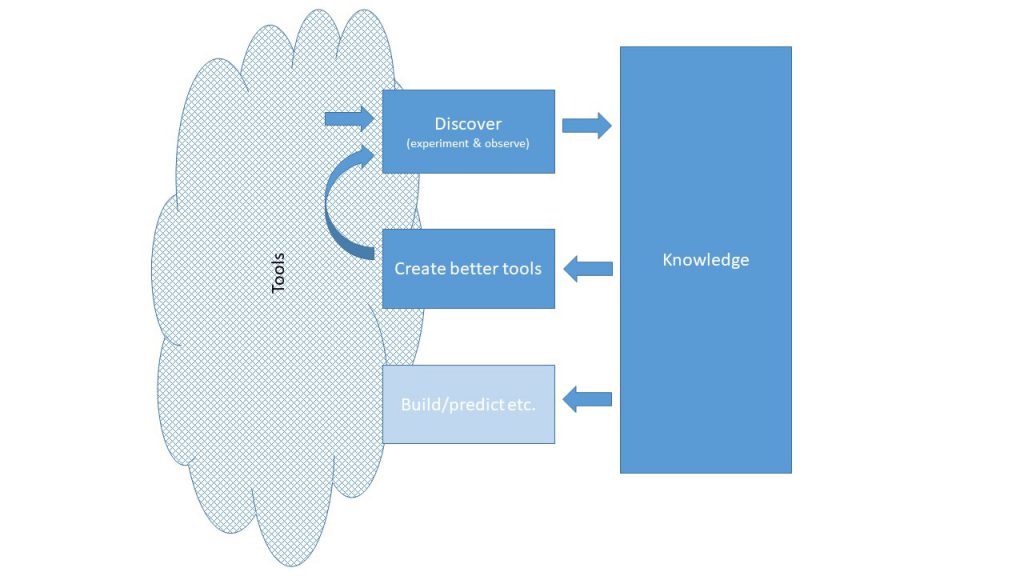
Another example: to design the next generation of microchips, computers are used. Computers optimize heat, predict performance etc. These computer run on microchips. Without microchips, we cannot improve our existing microchips.
Tools can and are reproduced all the time. The knowledge to create them is what matters. However, we need computers to design the next generation of computers.
Scientific method
Nowadays, many tools have become so complicated, that one person cannot really build them by themselves anymore, like Antoni van Leeuwenhoek did. We may grant somebody hero status, but in actual fact anybody developing something new will do so from a base “of shoulders of big scientists of the past”.
Antoni van Leeuwenhoek would not be able to create a contemporary microscope just by himself. Not to mention electron/neutron microscopes etc. The knowledge required and the amount of work required would just be too big. He would need the help of other people.
At the highest (society) level, we develop tools, theorize, observe, build better tools etc. Some investigation paths turn out to be dead-ends, some lead to something useful.
Which way should we investigate in order to be most efficient? This will remain a question of rigorous methodology, individual brilliance and luck. The real-world is fixed as she is. Investigating the real-world will add to our knowledge, but will not change her.
So, a form of trial and error, based on current knowledge seems an option. The errors would need to be identified as quick as possible, so as to not waste too many resources (falsification). The estimation of which paths might be most promising would need to be done by the most brilliant individual available.